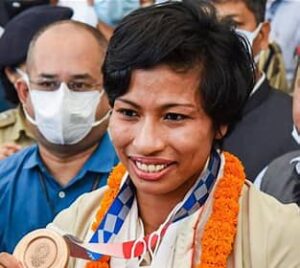Mamoni Raisom Goswami, one of the most celebrated literary icons of Assam, carved a distinct identity in Indian literature with her powerful storytelling and deep empathy for the marginalized. Winner of the prestigious Jnanpith Award in 2000, Goswami’s literary works, primarily in Assamese, brought regional stories to national attention. She was not only a prolific author but also a dedicated academic and social activist, who used literature as a tool to address gender inequality, political conflict, and social reform.
In this blog, we explore the life, achievements, and impact of Mamoni Raisom Goswami — the woman who redefined Assamese literature and left behind a timeless legacy.
Early Life and Education
Mamoni Raisom Goswami was born on 14 November 1942 in Gauhati (now Guwahati), Assam, into a culturally rich family. Her birth name was Indira Goswami, but she later adopted the pen name Mamoni Raisom Goswami, by which she is widely known.
From a young age, she displayed literary talent and an intense sensitivity to human suffering. Goswami was deeply influenced by her upbringing in a Vaishnavite household and the socio-political unrest she witnessed around her. She pursued her education at Cotton College in Guwahati and later completed her master’s degree in Assamese literature from Gauhati University.
Her academic journey took her to Vinayaka Mission University and later to Oxford University, where she studied comparative literature. This exposure gave her writing a unique cross-cultural flavor while keeping her rooted in Assamese ethos.
A Life Marked by Personal Tragedy
Mamoni Raisom Goswami’s life was shaped by personal tragedy. She lost her husband Madan Sharma, a marine engineer, in a road accident shortly after their marriage. This devastating loss pushed her into a deep depression, and she turned to writing as a means of coping.
Her autobiographical novel “Adha Lekha Dastabez” (An Unfinished Autobiography) reveals her inner struggles with loneliness, depression, and the societal expectations placed on women. Writing became both her refuge and her rebellion — a way to express what many women in conservative societies could not articulate.
Literary Contributions and Themes
Mamoni Raisom Goswami’s literary works span novels, short stories, poetry, and essays. She often focused on themes such as:
- The plight of women in patriarchal societies
- Caste and class discrimination
- Socio-political unrest in Assam
- Religious tension and reform
- Mental health and existential despair
Some of her most notable works include:
1. “Dontal Haatir Une Khowa Howda” (The Moth-Eaten Howdah of the Tusker)
This powerful novel, adapted into the critically acclaimed film “Adajya”, explores the rigid customs of widowhood in Assamese Brahmin society. Goswami challenges orthodox religious practices and highlights the emotional and psychological trauma of widows who are denied a life of dignity.
2. “Tej Aru Dhulire Dhushorito Prishtha” (Pages Stained with Blood)
This semi-autobiographical novel captures the trauma of the 1984 anti-Sikh riots in Delhi, which Goswami experienced firsthand while teaching at Delhi University. The novel unflinchingly presents the brutality of communal violence and questions the moral failure of society and state.
3. “Nilakanthi Braja” (The Blue-Necked Lord)
Based on her experiences with the Vaishnavite monks of Vrindavan, this novel sheds light on the plight of abandoned widows in the holy city. It critiques religious exploitation and spiritual hypocrisy, while also exploring Goswami’s own spiritual dilemmas.
Jnanpith Award and Other Honours
In 2000, Mamoni Raisom Goswami was honored with the Jnanpith Award, the highest literary recognition in India, for her outstanding contribution to Indian literature. She was the second Assamese writer after Birendra Kumar Bhattacharya to receive this award.
In addition to the Jnanpith, she received:
- Sahitya Akademi Award (1982) for Mamare Dhara Tarowal Aru Dukhan Upanyasa
- Padma Shri (2000) for literature and education
- Principal Prince Claus Award (2008) from the Netherlands
- Asom Ratna Award (2012) posthumously for her contributions to Assamese culture
These accolades are a testament to her courage, intellect, and humanistic vision.
Academic and Social Work
Goswami was not only a writer but also an academic at Delhi University, where she taught Assamese literature. Her students recall her as a brilliant teacher and a compassionate mentor who encouraged critical thinking and creative expression.
Beyond the classroom, Goswami played a significant role in peace-building efforts in Assam, particularly between the Government of India and the insurgent group United Liberation Front of Asom (ULFA). She volunteered as a mediator, risking her safety to bring conflicting sides to the negotiation table. Though the peace process had its challenges, her efforts reflected her commitment to the people of Assam.
Legacy and Influence
Mamoni Raisom Goswami’s impact extends far beyond the literary world. She remains a symbol of resistance, especially for women and marginalized communities in Northeast India.
Her stories have been translated into many Indian and international languages, ensuring that her voice reaches a global audience. Several of her works have been adapted into films and plays, sparking dialogue on issues that are often swept under the rug.
She has inspired a generation of writers and activists who continue to draw strength from her life and literature.
Mamoni Raisom Goswami’s Connection to Assam
Though she spent much of her life in Delhi and Vrindavan, Goswami’s emotional and creative compass always pointed to Assam. Her writing preserved the dialects, folk tales, rituals, and socio-political complexities of Assam, making her a cultural ambassador of the region.
She represented Assam’s rich literary tradition on national and global platforms, drawing attention to its unique identity and struggles. Through her pen, she voiced the concerns of ordinary Assamese people — women, widows, insurgents, students, priests, and rebels.
Death and Commemoration
Mamoni Raisom Goswami passed away on 29 November 2011 at the age of 69, after a prolonged illness. Her death was mourned across India, especially in Assam, where she is revered as a literary luminary and humanitarian.
In her memory, the Mamoni Raisom Goswami Literary Award has been instituted to recognize emerging literary talent in Assam and the Northeast.
Her residence in Guwahati has been converted into a museum and cultural center, preserving her manuscripts, awards, and personal belongings for future generations to study and cherish.
Conclusion
Mamoni Raisom Goswami was more than a writer — she was a torchbearer of truth, empathy, and resistance. Her works challenged societal norms, spotlighted hidden injustices, and gave voice to the voiceless. As the first Assamese woman to win the Jnanpith Award, she etched her name in the annals of Indian literature with indelible ink.
For those interested in literature with social depth and emotional honesty, Goswami’s works are essential reading. Her legacy lives on not just in books and awards, but in the minds and hearts of those who dare to speak against silence.






